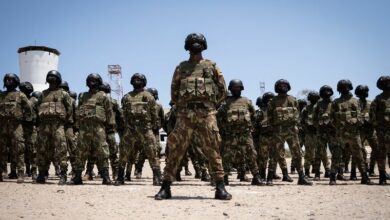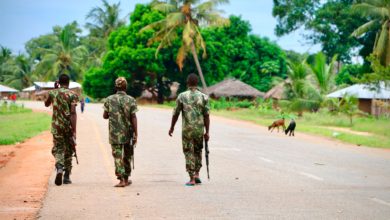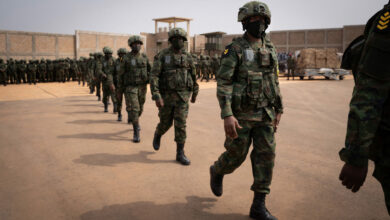Suspected jihadists hacked seven people to death with machetes and set scores of homes on fire on Tuesday, June 5 in northern Mozambique, police said, in a region that has suffered a spate incidents in recent days.
Cabo Delgado province, which is expected to become the center of a nascent natural gas industry after several promising discoveries, has seen a number of deadly assaults on both security forces and civilians since October.
“The bandits used machetes to kill the seven persons,” police spokesperson Inacio Dina told AFP.
Two of those killed were boys aged 15 and 16.
In a dawn raid on Tuesday, the assailants burned 164 houses and destroyed four cars during the assault on the village of Naude in the Macomia district, the spokesperson said.
“We think this group is likely part of the [one] that beheaded 10 [people on] May 27,” referring to an incident in the same region in which a group attacked two small villages near the Tanzanian border and decapitated 10 residents. The attack was blamed blamed on a group known locally as “al-Shabaab.”
The two villages are near Palma, a small town gearing up to be the country’s new natural gas hub in Cabo Delgado.
Dina suggested that the group was also linked to the nine “insurgents” killed by security forces three days earlier who were subsequently found to be carrying assault rifles and Arabic-language documents. The insurgents were killed close to the site of last week’s beheadings.
“This group is very fragmented in small groups [and] they try to resist police attacks,” he said.
Alex Vines, an analyst on Mozambique for the London-based Chatham House think-tank, said anticipation of a gas boom had increased the sense of inequality in Cabo Delgado.
“A series of recent studies have concluded that this has been one of the drivers for growing youth militancy — particularly among young men,” Vines told AFP.
The Mozambican group known as al-Shabaab, which has no known link to the Somali group of the same name, has been described by witnesses and officials as a jihadist faction allegedly responsible for a number of attacks in Cabo Delgado.
The group is believed to be responsible for a deadly October attack on a police station and military post in the town of Mocimboa da Praia. Two police officers died and 14 attackers were then killed in what was believed to be the first jihadist attack in the country.
In the following weeks, at least 300 Muslims, including Tanzanians, were arrested and several mosques were forced to close. More than a third of those arrested are still held, according to the authorities.
The increase in attacks in the north of the country could pose problems for Mozambique, which holds general elections next year and hopes to cash in on the recently discovered gas reserves.
The vast gas deposits discovered off the shores of Palma could transform the impoverished country’s economy.
Experts predict that Mozambique could even become the world’s third-largest exporter of liquefied natural gas.
But the country’s north has largely been excluded from the economic growth of the last 20 years, and the region sees itself as a neglected outpost, creating fertile ground for radical al-Shabaab-style ideology.
Vines said that it was vital that the government did not itself fan the flames of the violence seen in recent months with a heavy-handed response.
“It’s urgent that the government…, does not overreact to the new armed crisis in Cabo Delgado,” he said, adding that organised criminal networks had also played a role in the sudden mushrooming of jihadist cells in the country.
Mozambique last month passed an anti-terrorism law that punishes terror activity with prison sentences of more than 40 years.









One Comment